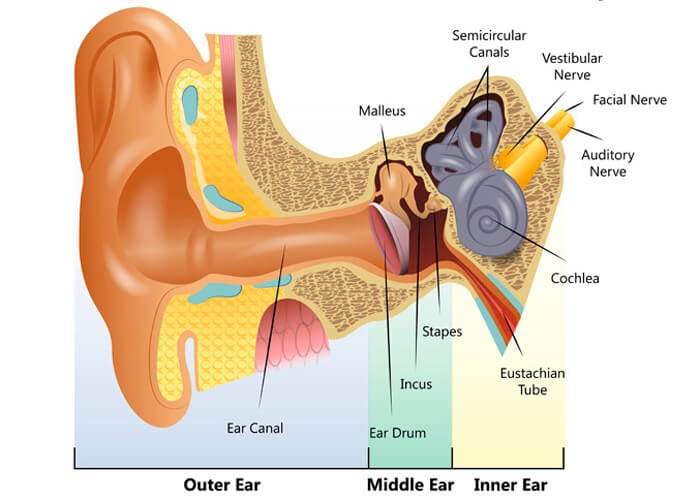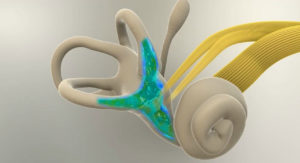
Article highlights
- Introduction
- Medical causes of tinnitus
- Blood vessel disorders
- Medications which can cause tinnitus
- Psychological and physiological Difficulties related to tinnitus
Tinnitus is caused by a wide variety of difficulties making treatment or the help offered, quite varied. Tinnitus can be caused by a physical, medical or somatic difficulty as well as trauma or stress.
It is important to understand what is causing your tinnitus because this is what dictates what help will be most effective. Help might be offered on a medical basis, somatic basis, psychological basis or a combination of all three.
Help might be about complete tinnitus cessation or managing a tinnitus difficulty with the help of technology or psychological intervention.
One of the difficulties people find in relation to getting tinnitus help is the number of different healthcare professionals involved or possible psychological help offered as well as alternative therapies or miracle cures marketed online.
The articles I write are aimed at helping you cut through the noise to help you find a tinnitus solution to hep you. This article outlines some of the common causes of tinnitus as well as the less common causes of tinnitus.

Medical Tinnitus Causes
Hearing Loss
The most common medical complaint associated with tinnitus is hearing loss. There are three types of hearing loss which may contribute to tinnitus symptoms.
Sensorineural hearing loss
- Sensorineural is an adjective which describes hearing loss caused by a lesion or disease of the inner ear or the auditory nerve. It is the most common type of hearing loss. Damage to hair cells found in the ear caused by age, disease or sound can cause sensorineural hearing loss. Age related hearing loss is the most common type of sensorineural hearing loss and is medically terms as presbycusis.
Mixed hearing loss
- Mixed hearing loss is a is a combination of conductive and sensorineural hearing loss. This might be caused by difficulties with the outer, middle, inner ear or auditory nerve. Causes might include a recurring or long-term infection, a family history of a disorder or head or neck injury.
Conductive Hearing Loss
- Conductive hearing loss occurs when sound is unable to pass through the outer and middle ear. It can be caused by: fluid in the middle ear, benign tumours, earwax build up, a perforated ear drum, eustachian tube dysfunction, an object stuck in the outer ear, or a deformity in the way the middle or outer ear is formed.

Meniere’s disease
Meniere’s disease describes an inner ear disorder which affects inner ear fluid pressure. Symptoms might be experienced in one ear with as well as feeling dizzy.
Acoustic neuroma
An acoustic neuroma describes a benign tumour which develops on the cranial nerve which connects the brain to the ear. This cranial nerve helps with balance and hearing. Having a tumour on this particular cranial nerve usually causes tinnitus in one ear.
Muscle spasms
Our ears have lots of tiny muscles to assist with our hearing function. Sometimes these muscles can go into spasm as a result of trauma or for no identifiable reason. This spasming can cause tinnitus, hearing loss of a feeling of fullness in the ear.
Eustachian tube dysfunction.
The eustachian tube connects the upper throat to the middle ear. Eustachian tube dysfunction might occur when its mucosal lining becomes swollen or does not open or close properly. Symptoms might include tinnitus, hearing loss, feelings of fullness in the ear or pain.
Book Tinnitus Therapy
07944 996 646
contact@tinnitushearingsolutions.com
Head or neck injuries
Head or neck injuries can affect our hearing apparatus especially if we have experienced trauma in relation to small bones in the skull as well as nerve damage. Head trauma can cause hearing loss and or tinnitus.
Surgery
Having surgery or medical procedure especially in the head or neck area can trigger tinnitus.

Blood vessel disorders
Blood vessel disorders which can contribute to the onset of tinnitus might include:
High blood pressure can increase the severity of tinnitus symptoms. It can be caused by obesity, smoking, stress, excessive alcohol consumption, old age or being unfit.
Atherosclerosis describes a restriction in blood flow caused by a build up of cholesterol and plaque sometimes related to age. This can cause muscles in the ear to loose their elasticity and ability to expand and contract in synchronicity with your heartbeat. Loosing this flexibility can make blood flow more turbulent making it easier to detect our heartbeats. This can contribute to pulsatile tinnitus symptoms.
Tumours which press on blood vessels in the head can cause tinnitus symptoms
Turbulent blood flow caused by a narrowing of veins and arteries in the head or neck can cause irregular or turbulent blood flow leading to tinnitus.

Medications which can cause tinnitus
You might be experiencing tinnitus unnecessarily if it is being caused by medication. Speak with your local doctor to see if there is an alternative medication you can take. Click here for a full list of medication which can cause tinnitus. There are a number of groups of medications which can cause tinnitus.
These can include:
- Pain-killers (analgesia) and Anti-inflammatory medication namely aspirin, ibuprofen, naproxen and diclofenac.
- Anti-malarial Medication
- Hypnotics
- Antibiotic Medication
- Cancer Medication
- Trycyclic Antidepressants
- Idiosyncratic Drug Reactions
- Recreational Drugs including alcohol, caffeine, nicotine and marijuana

Psychological and Physiological Difficulties relate to Tinnitus
Experiencing tinnitus difficulties is closely associated with psychological and somatic problems. You might have experienced a recent trauma or particularly stressful period. Incidents like this can put the nervous system and body into overdrive. Obsessive thinking is also common in relation to tinnitus difficulties.
Situations which can trigger tinnitus might include:
- Losing one’s job
- Single even trauma
- Multiple traumas
- Complex trauma
- Shock trauma
- Prolonged periods of stress
- Not sleeping
- Addiction particularly smoking and alcohol
- Witnessing a trauma
- Burning the candle at both ends
- Moving house
- Stressful operation
- Bereavement
- Illness
- Mental health difficulty: depression, stress and anxiety
